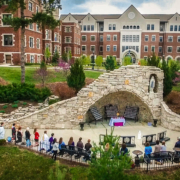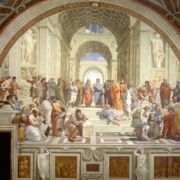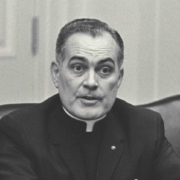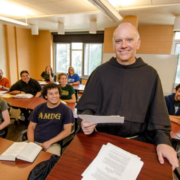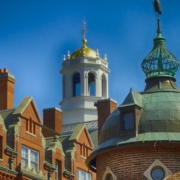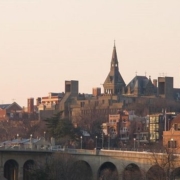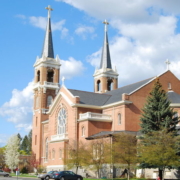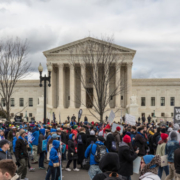Prepared for Life: Why Choose a Faithful Catholic College
Editor’s Note: The Cardinal Newman Society recently announced Landis Lehman, a homeschooled student from Lucas, Texas, as the winner of the Society’s third annual Essay Scholarship Contest on faithful Catholic education. She will receive a $5,000 scholarship toward her first year at Benedictine College in Atchison, Kansas, and is eligible for continuing aid from Benedictine in subsequent years. Below is the full text of Lehman’s winning essay. More information about the Contest can be obtained here.
A college that boldly embraces its Catholic character stands out from the crowd. The education I will receive at this type of college will prepare me not only for a career, but also for a life as a faithful follower of Christ. In addition, I will become part of a close-knit community that is passionate about helping its students live healthy, holy lives. Overall, the college climate in which I will spend my critical developing years will be one that helps me, not hinders me, towards my ultimate goal of heaven.
The pursuit of truth—this will be the object of my education at a faithful Catholic college. Science and math will teach me about creation’s marvelous design, while history and literature will increase my understanding of the human person and society as seen in the light of Catholic teaching. Most importantly, through the study of theology, my mind will be enlightened by the divine truths that have been revealed to man by God Himself. Furthermore, I will develop critical thinking and reasoning skills, allowing me to continue distinguishing truth from falsehood as I move forward in life. In addition, I will gain the ability to clearly and persuasively express the truth through both the written word and oral communication. After four years of authentic Catholic education, my mind will be illuminated by truth, and I will be well prepared to continue in the lifelong pursuit of discovering truth and helping others do the same.
Not only will a truly Catholic college transform my mind, but it will also nurture my body and spirit. I will have the opportunity to develop my spiritual life by listening to prominent Catholic speakers, participating in Bible studies, and living out Catholic social justice teachings through service work. At the same time, I will be able to participate in athletics and other activities that promote a healthy lifestyle. What I look forward to the most, however, is the community and companionship that the college will foster through these and other events. Understanding the human need for fellowship, a devoutly Catholic college will ensure that it has activities that encourage students to spend their free time on campus, interacting with fellow students and forming deep, genuine friendships. Thus, a college that is truly passionate about its Catholic faith will not fail to provide me with opportunities to gain strength of body and soul and become an active member of its community.
The most important aspect, however, of attending a college that lives out its Catholic identity is the overall environment in which I will live—an environment that will guide me towards virtue during my most crucial formative years. Only at this type of college will the Mass be treated as an integral part of student life. Here alone, the sacraments will be available to me daily, and an Adoration chapel will never be more than a few steps away. I will be surrounded by students who have a passion for their faith, and their example will inspire me to pursue goodness in my own life. In addition, as I discern my vocation, I will find myself in a college atmosphere that promotes pure relationships through its policies. In short, as I mature into an adult and discover my calling, nothing could be more beneficial than to live in an environment where virtue and holiness are so much encouraged.
Choosing to attend a faithful Catholic college is a decision that will affect more than my next four years—it will influence me for life. The education I will receive will cultivate in me a love of truth that will stay with me long after graduation. Likewise, the godly relationships that I will forge with the inspiring students around me will become an integral part of my adult life. Most importantly, at a college where every aspect of life is pervaded by a devoutly Catholic culture, I will be provided with a foundation that will inspire me to strive for holiness every day of my life. A faithful Catholic college truly will make me prepared for life—not only for this earthly life, but also for the eternal life of heaven.

